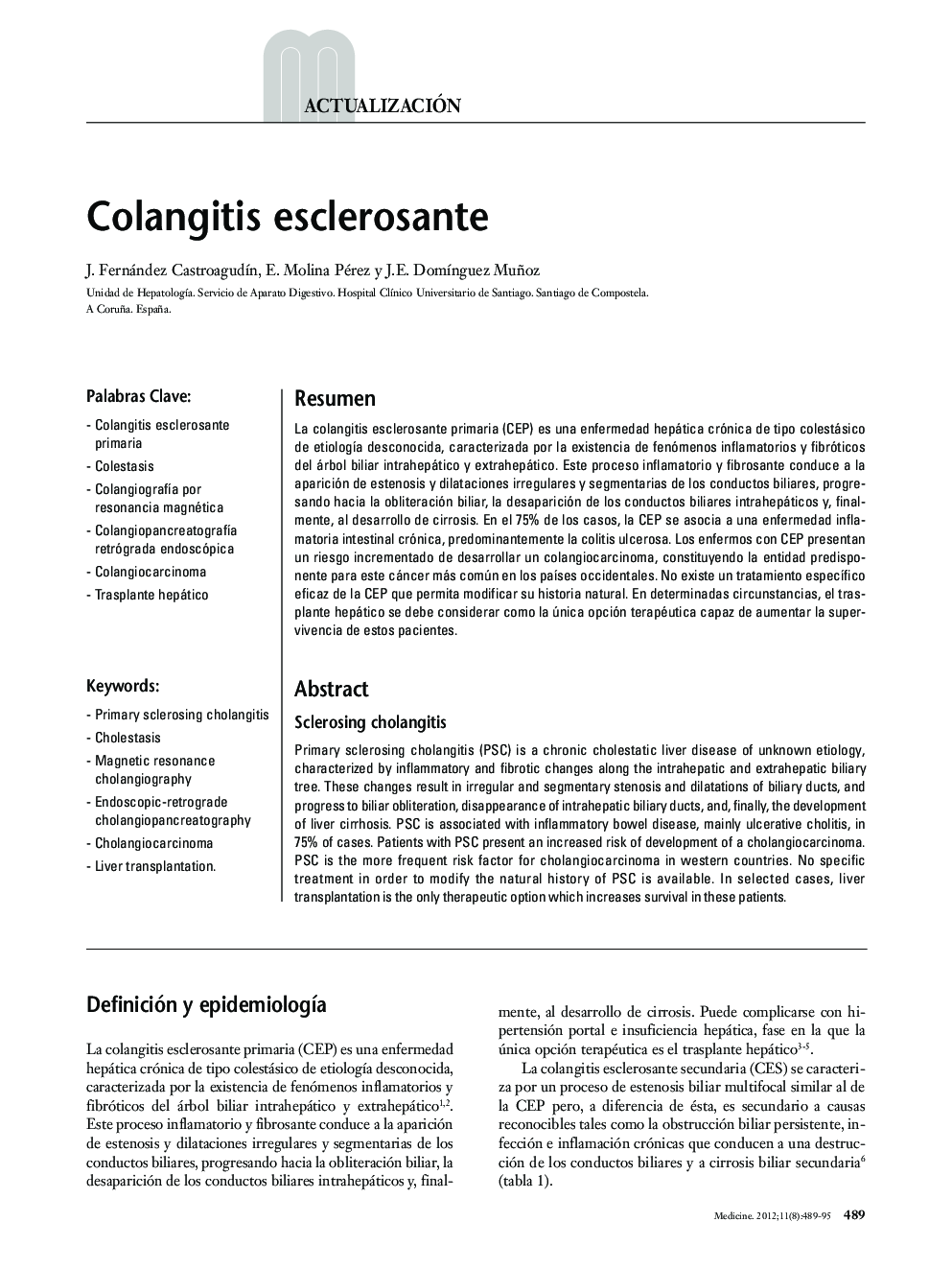| Article ID | Journal | Published Year | Pages | File Type |
|---|---|---|---|---|
| 3809644 | Medicine - Programa de Formación Médica Continuada Acreditado | 2012 | 7 Pages |
Abstract
Primary sclerosing cholangitis (PSC) is a chronic cholestatic liver disease of unknown etiology, characterized by inflammatory and fibrotic changes along the intrahepatic and extrahepatic biliary tree. These changes result in irregular and segmentary stenosis and dilatations of biliary ducts, and progress to biliar obliteration, disappearance of intrahepatic biliary ducts, and, finally, the development of liver cirrhosis. PSC is associated with inflammatory bowel disease, mainly ulcerative cholitis, in 75% of cases. Patients with PSC present an increased risk of development of a cholangiocarcinoma. PSC is the more frequent risk factor for cholangiocarcinoma in western countries. No specific treatment in order to modify the natural history of PSC is available. In selected cases, liver transplantation is the only therapeutic option which increases survival in these patients.
Keywords
Related Topics
Health Sciences
Medicine and Dentistry
Medicine and Dentistry (General)
Authors
J. Fernández CastroagudÃn, E. Molina Pérez, J.E. DomÃnguez Muñoz,
